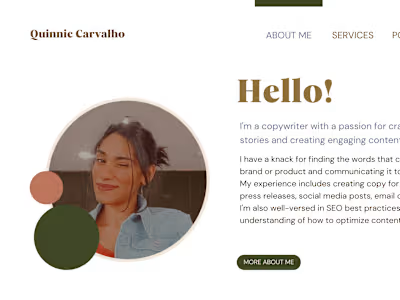LinkedIn Article Post
If I told you my hobbies included researching about "Quantum Physics" would it get me hired?.......

Please view original content on Linkedln
A year ago , I was an unemployed 20-something, so getting an interview and finding a job was the next logical step.
But when I sat down for an interview at one of China's most loved Korean franchise stores, I was not expecting them to ask: " What does your family do ?" and then the following response was " Oh your family works at UAE's most prestigious airline?, Why don't you apply there instead?"
Yup..... that was one awkward interview and an excellent example of why the right questions matter. The workforce in the 21st century is changing. We're younger, more strategic, and more tech-savvy than ever.
But most importantly our priorities are changing and you ( the employer) have to meet those demands …..
Your questions as an organization speak volumes on how you implement, value, and come across as an organization, likewise, our answers do the same for you.
It's like speed dating ….. but for a job ;).
So Here are 7 questions or less...… that aren't unbelievably boring and make sense as told by GEN Z.
Tell me about yourself. / Instead: What activities do you indulge in after work? Not only is the first question boring it's overwhelming, and often used as an ice breaker the question does the exact opposite, most graduates often curate a response you want to hear in terms of what their ideal candidate for the role sounds like (e.g.: "I love reading books on X Company's suggested software they use") it's just not genuine. However, the second question show's that as a company you value your employee's work-life balance and you also learn a bit about who they are while easing them into the interview.
What are your professional achievements / Instead: Are there any projects that you're passionate about that you've exceeded in? OR Tell us a scenario where you've portrayed unique skills that helped a project become successful. This one is self-explanatory your first question isn't detailed enough for us to give the answer you're looking for, so you get a list of certificates or the things we've done without the explanation of "how". The latter question however allows you to assess the problem-solving aspect of the interview.
How do you deal with pressure or stressful situations? Instead: what's your work style? Let's admit that " working well under pressure" isn't the same as multitasking and the science behind it has more of a damaging impact than a positive one so if your company isn't willing to admit their pressure results in burnout then the latter question isn't one you're going to ask, to keep your employee working in a smooth stable environment. ( adapting doesn't = stressed out )
Why do you want this job? Instead: What is it about our company that made you apply? You'd be lying if you said you didn't want it for the money. While experience and passion are great motives they don't sustain a living. The latter question allows you as a company to gage your appeal to the masses. ( what is it about your company that makes people wanna work here and for you? ) ...... besides the obvious paycheck.
why should we hire you? ( Instead: what skills could you offer us that would elevate our company in X position) While the first question is standard the 5 min elevator pitch that comes along with it doesn't showcase your potential employee's unique skills or talents that could help you as a business, remember the company is the consumer the employee is the supplier.
Where do you see yourself in 10 - 5 years? / Instead: What does your dream job look like? Gen Z is always planning two steps ahead which means staying in your company isn't always in their plans, but every good leader knows it's okay to let your best ones go. The second question doesn't seem like much but helps a company know how they can adapt work environments to keep their future or existing employee or maybe even find out if their candidate is a team player or leader.
What are your greatest strengths and weakness? / Instead: Are you willing to learn new strategies or software to improve in this role? OR Tell us a time you've failed and how you dealt with it. Even a CEO fails and has weaknesses but it's not the reason they are CEO its because they're always learning and that's important for your employees, cause the "weaknesses" are just human errors improved by learning, It cannot be your reasoning for dismissing qualified candidates because their strengths should be enough of a reason to see the potential. ( the pros & con's list goes both ways)
And there you have it! a combination of these questions is enough to decide on which candidate you'd like to hire, covering everything from problem-solving to resourcefulness. Isn't that so much easier?
Hopefully the next time go in with a bunch of interview question you ask HR if it ties in with your company values and what you're looking for.
Cause let's save the round of 20 questions for an actual date shall we.
What interview questions do you think are outdated & why ? ( start a conversation in the comments!)
Did you enjoy this read ? give it a like, a repost, spark that conversation that's what this platform is for.
Like this project
Posted Jul 19, 2023
A written Article post on LinkedIn explaining why employers shouldn't be asking outdated interview questions anymore and what they could ask instead.
Likes
0
Views
13






